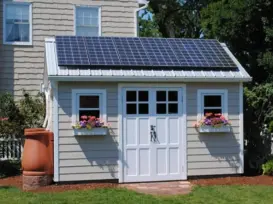Grus Home Energy - Energy Optimization
Maximizing Efficiency: The Key to Energy Optimization
Energy optimization is a crucial aspect of any organization looking to reduce their operational costs and environmental impact. By maximizing efficiency in the way energy is generated, distributed, and consumed, companies can not only save money but also contribute to a more sustainable future. There are various strategies that businesses can implement to achieve energy optimization, from upgrading equipment to implementing smart technology solutions.
One of the first steps in energy optimization is conducting an energy audit to identify areas of inefficiency and opportunities for improvement. This can involve analyzing utility bills, conducting onsite inspections, and using energy monitoring systems to track energy usage. By understanding where energy is being wasted, companies can develop a targeted plan to address these inefficiencies and optimize their energy usage.
Upgrading equipment is often a key component of energy optimization. Older, inefficient equipment can consume a significant amount of energy and drive up operational costs. By investing in energy-efficient appliances, lighting, HVAC systems, and machinery, companies can reduce their energy consumption and lower their utility bills. In some cases, energy-efficient equipment may also be eligible for rebates or incentives from utility companies or government agencies, further offsetting the cost of upgrades.
Implementing smart technology solutions can also play a crucial role in energy optimization. For example, building automation systems can help companies monitor and control energy usage in real-time, adjusting settings based on occupancy levels, weather conditions, and other factors. This can help optimize energy usage, reduce waste, and improve overall efficiency. Similarly, smart meters and sensors can provide valuable data on energy consumption patterns, enabling companies to identify trends and make informed decisions about energy management.
Another important aspect of energy optimization is employee engagement and training. By educating employees about energy-saving practices and encouraging them to take an active role in reducing energy waste, companies can create a culture of sustainability within their organization. This can include simple actions such as turning off lights and equipment when not in use, adjusting thermostats to optimal temperatures, and using energy-efficient practices in daily operations.
Overall, energy optimization is a multifaceted process that requires a combination of strategies and technologies to achieve maximum efficiency. By conducting energy audits, upgrading equipment, implementing smart technology solutions, and engaging employees in energy-saving practices, companies can reduce their environmental footprint, save money, and create a more sustainable future for all.
©2025 All Rights Reserved. Grus IoT Co.,Ltd.
